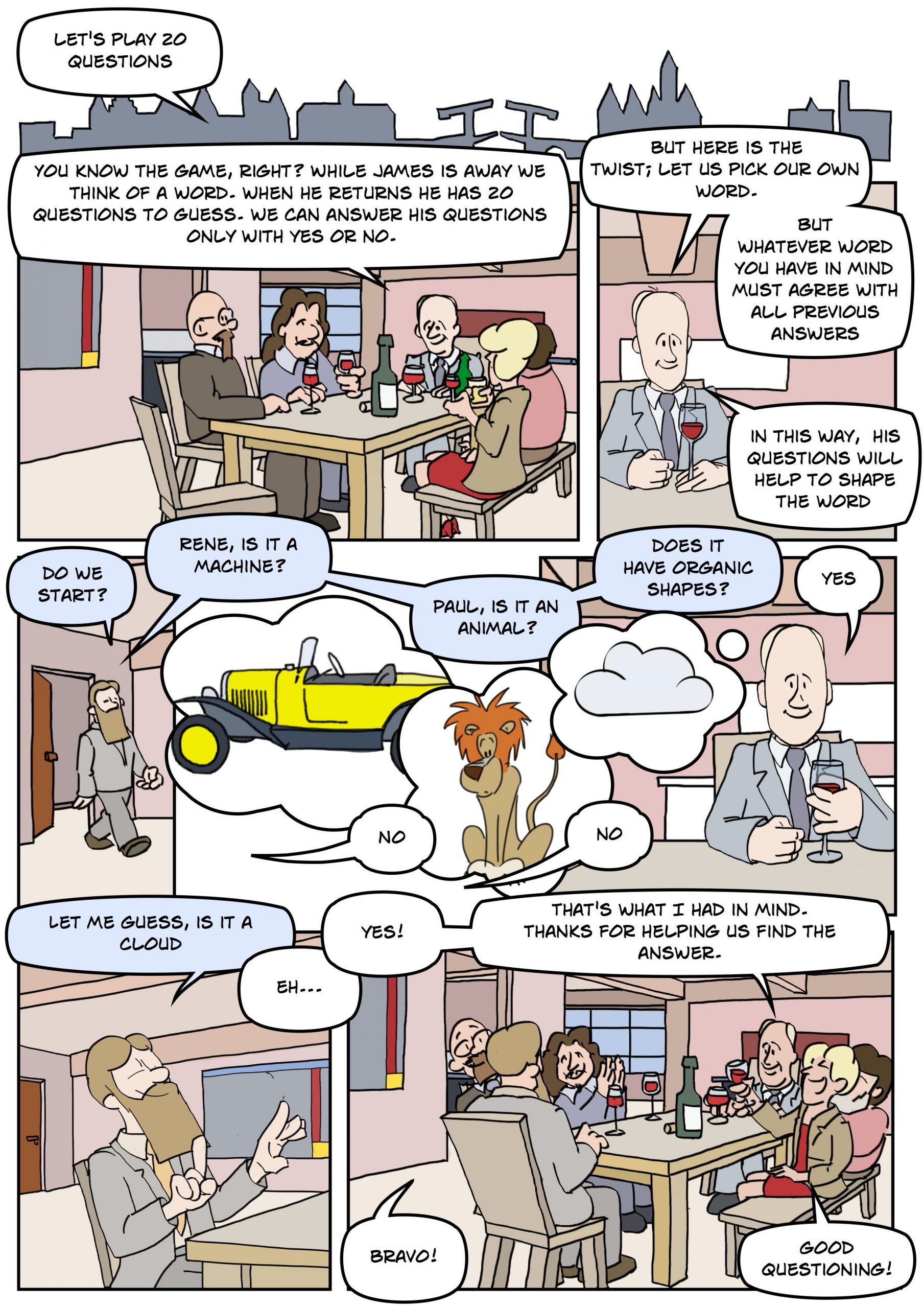
Heinz von Forster observed that
Objectivity is the delusion that observations could be made without an observer.
I think this has important implications for those of us interested in studying human experience. The idea that we can be objective observers of human experience may be a delusion. In fact, in many contexts the constraints we impose as observers may account for most of what we see. For example, early in my career I did research on human tracking and was at first amazed that classical or optimal control models could account for up to 90% of the variance. Now I look back and think - why was I surprised that when I constrained the situation so that the person had to behave like a simple servomechanism to succeed the resulting behaviors could be accounted for using models of simple control systems.
The physicist John Wheeler used the Surprise Version of the 20 Questions game to illustrate the impact of observers and the epistemological implications at the Quantum level.
In contrast to the normal Twenty Questions game where the people in the room decide on a single word to be the target, in the Surprise Version the people in the room each independently choose their own words with the constraint that once the game begins, the word that they have in mind must not contradict any previous answers to questions. This may require that the people in the room have to change their word over the course of the game to be consistent with the responses of other people. Thus, the "correct" word is a moving target that is shaped, in part, by the questions asked. In fact, the final target may not have been in anyone's mind when the questioner re-enters the room. Wheeler concludes his story that
In the real world of quantum physics, no elementary phenomenon is a phenomenon until it is an observed phenomenon. In the surprise version of the game no word is a word until that word is promoted to reality by the choice of questions asked and answers given. ‘Cloud’ sitting there waiting to be found as we entered the room? Pure delusion!
The lesson of the Surprise Version of 20 Questions is particularly relevant to exploring human experience. Just as at the quantum level, the actions of the observer (i.e., scientist) can be a significant source of variance. This impact is typically referred to as the demand characteristics. These demand characteristics (e.g., the awareness of participants that they are being observed) can be important factors in shaping the experience (i.e., performance) that results.
Also, it is important to realize that human actions (e.g., innovative technologies) are shaping the opportunities for experience more globally. For example, new forms of travel and communication greatly extend our abilities to explore the world and to collaborate with people in distant locations. Cell phones have dramatically changed how people coordinate social activities – “Just call me when you get out of class and I will let you know where I am, so that we can meet.” Thus, we should not think about human experience as an “object” that exists “out there” independent from the experience of the scientist or designer. Experience is not a stationary object that can be isolated and studied in a vacuum as if it is independent of an observer. Experience is constantly evolving in response to changing physical and social contexts.

Great post! I enjoyed reading about the importance of asking questions when observing nature. It's amazing how much we can learn when we take the time to observe and inquire about the natural world around us. This approach can also foster a sense of curiosity and wonder, which can inspire us to continue exploring and learning. Keep up the great work!